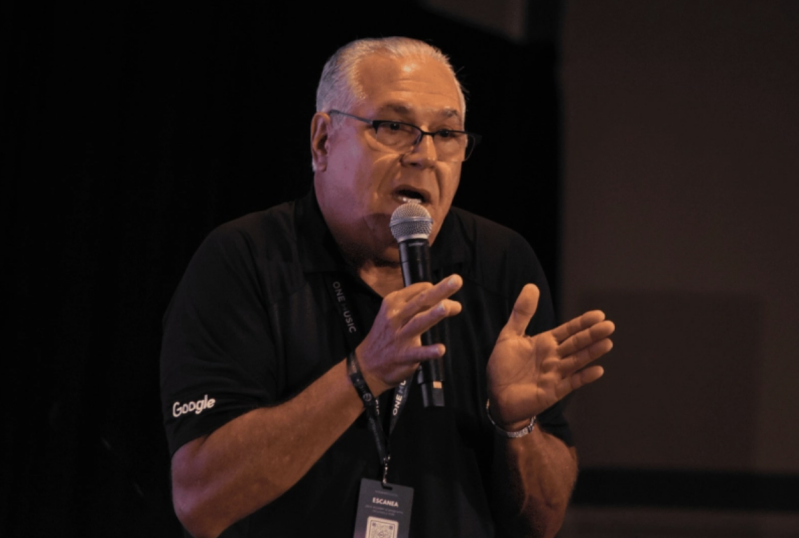
At the Media Music Marketing Summit, Vicente Pimienta, a Google Digital Coach, combined a personal testimony of faith with a practical masterclass on artificial intelligence (AI), urging participants to see technology as a tool but perseverance as the true key to success.
Pimienta opened his talk by recounting how he came to work for Google. After running his own internet company for 20 years, he said he found himself $25,000 in debt and on the verge of bankruptcy. “And I went off crying on my bicycle, because yes, men cry,” he told the audience. In that moment of despair, he prayed: “I said to God, ‘Why are you doing this to me? I’ve had my company for 20 years and it’s going to end like this.’”
Minutes later, Pimienta said, he received a call from friends at the organization Prospera USA telling him that a company was looking for him. That company turned out to be Google. “Can you believe that I was the only person they interviewed?” he said, describing the event as a divine intervention in his life.
He told the audience that the experience confirmed a principle he had once read in a book: “When you feel like giving up, it means you’re about to make it. That’s happened to me three times in my life—just when I was about to quit.” He encouraged participants, “If you feel like giving up, rejoice! You’re about to make it.”
From there, Pimienta shifted to AI, aiming to demystify a concept often met with fear or confusion. “It’s not a robot, not a machine, not one single thing. It’s software that does tasks normally associated with things humans do,” he said.
He emphasized that AI is not the future but the present, and cautioned professionals that their competition is not the technology itself but “another professional who’s already using it.”
Pimienta outlined categories of AI, including machine learning, which learns from user patterns; language models, which are rule-based; and large language models, which are more flexible and trained on billions of documents. He also described generative AI, such as Google’s Gemini, which creates new content ranging from text and code to images and music.
He pointed to ways Google has already integrated AI into its tools to support small businesses. Features include generating optimized descriptions for Google Business Profiles and creating digital menus for restaurants from a single photo in about 30 seconds.
Highlighting Gemini, Pimienta described it as “an ecosystem of multiple Large Language Models, Language Models, Machine Learning; it’s a city powered by all the information on the planet.” He said the system underpins improvements in YouTube, Gmail, Google Drive and Google Search.
Pimienta also offered five steps for effective “prompting” when using AI tools: being specific about the task, assigning the AI a role (such as “act as my social media manager”), giving context, providing references, and evaluating and refining the results.
He closed with a call to use the technology responsibly, comparing AI to a knife that can be helpful in the kitchen but dangerous if misused. “We have a responsibility to use this responsibly. Before publishing or using it, don’t feed it false information, don’t use it to harm anyone. Ask yourself, ‘Will this hurt someone if I use it this way?’” he said.
Pimienta’s presentation left participants with a twofold message: that faith and perseverance are essential to overcoming professional challenges, and that AI, when used wisely, is a powerful ally for growth and innovation.
Original reporting by Diario Cristiano, Christian Daily International's Spanish edition.






